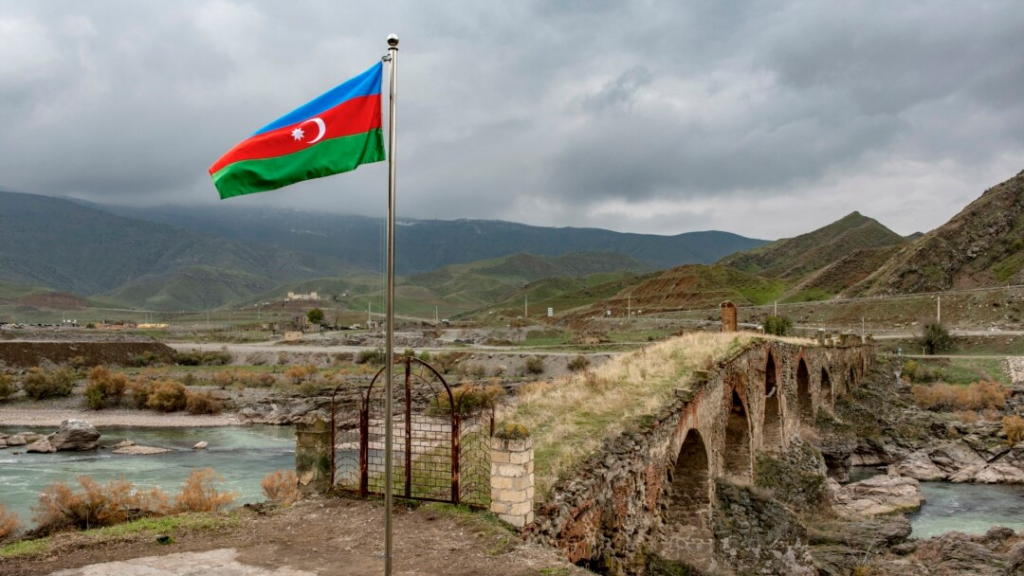Tehran’s Demands on Armenia Raise Geopolitical Stakes
Iran’s Supreme National Security Council Secretary, Ali Akbar Ahmadian, has issued an urgent set of demands to Armenia. The Iranian leadership is intensifying its involvement in the region, reportedly offering to deploy troops to Armenian territory under a proposed defense pact. The move signals Tehran’s growing unease over geopolitical shifts in its northern neighborhood and its readiness to act decisively.

Tehran’s Concerns Over Regional Dynamics
Iran’s strategic position in the Middle East has been increasingly challenged. Tehran has traditionally relied on allies like Hamas in Gaza, Hezbollah in Lebanon, and the Assad regime in Syria to project power. However, recent developments have left Iran’s influence in these areas diminished, prompting a shift in focus toward the north.
Armenia’s increasing alignment with the West, including aspirations for closer ties with the European Union (EU) and NATO, has alarmed Iranian officials. According to diplomatic sources, Ahmadian’s demands included a clear warning to Armenia’s leadership: abandon EU and NATO aspirations or face serious consequences. Iran views Armenia’s growing Western orientation as a direct threat to its regional security.
The Iranian Proposal: Troops in Armenia
Ahmadian’s proposal to Armenia includes a bold offer—a defense pact involving the deployment of Iranian armed forces on Armenian soil. This move would significantly expand Iran’s military footprint in the Caucasus region. However, it also comes with strings attached. Tehran expects Armenia to dismantle the EU’s monitoring mission in the country, which it has labeled a “spy” operation.
The EU mission, established to monitor stability along Armenia’s borders with Azerbaijan, has become a sticking point for Tehran. Iran perceives it as a Western tool for undermining its influence in the region. By proposing a defense pact, Tehran seeks to counterbalance Western involvement while securing its northern borders.

Azerbaijan’s Role in the Equation
Interestingly, Iran’s overtures to Armenia appear to have Azerbaijan’s tacit approval. Iran’s relationship with Azerbaijan has historically been fraught with tension, particularly over Baku’s close ties to Israel and its handling of ethnic Azeris within Iran. However, the two countries seem to have found common ground in opposing Armenia’s Western pivot.
Iran’s alignment with Azerbaijan on this issue could mark a shift in regional alliances. By coordinating with Baku, Tehran hopes to create a united front against Western influence in the South Caucasus.
Russia’s Reaction: A Warning to Armenia
Russia, traditionally Armenia’s main ally, has also expressed disapproval of Yerevan’s moves toward the West. Moscow’s criticism of Armenia’s potential EU membership has been particularly sharp, with Russian officials likening it to boarding a “ticket to the Titanic.” They argue that aligning with the EU could pave the way for Armenia’s withdrawal from the Eurasian Economic Union (EAEU), further distancing it from Russia’s sphere of influence.
Iran and Russia’s shared discontent with Armenia’s Western aspirations highlights the increasing pressure on Yerevan. Faced with demands from both Tehran and Moscow, Armenia must navigate a complex and precarious geopolitical landscape.

Implications for Armenia
Armenia now finds itself at a crossroads. The country’s leadership must weigh the potential benefits of closer ties with the West against the risks of alienating powerful neighbors like Iran and Russia. Accepting Tehran’s offer would deepen its dependence on Iran and strain its relationships with Western allies.
Moreover, hosting Iranian troops could exacerbate tensions with Azerbaijan. Despite Tehran’s coordination with Baku on pressuring Armenia, any Iranian military presence in Armenia might spark new disputes between the two nations.
Regional and Global Repercussions
Iran’s readiness to deploy troops in Armenia reflects its determination to assert influence in a rapidly changing region. This move could escalate tensions in the South Caucasus, a region already marked by fragile peace and recurring conflict between Armenia and Azerbaijan.
On a broader scale, Iran’s actions underscore the shifting dynamics of great-power competition. Tehran’s proposal aims to counterbalance Western influence while reaffirming its role as a key player in the region. However, it also risks deepening divisions and destabilizing an already volatile geopolitical environment.

Armenia’s Dilemma
As Tehran intensifies its demands, Armenia faces a challenging decision. Accepting Iran’s offer could provide short-term security guarantees but at the cost of long-term geopolitical isolation. On the other hand, pursuing closer ties with the West risks provoking hostile reactions from both Iran and Russia.
The coming months will be crucial in determining Armenia’s path forward. With Iran’s readiness to deploy troops adding another layer of complexity, the stakes for Yerevan have never been higher.
Our Visitor






 Users Today : 10
Users Today : 10


